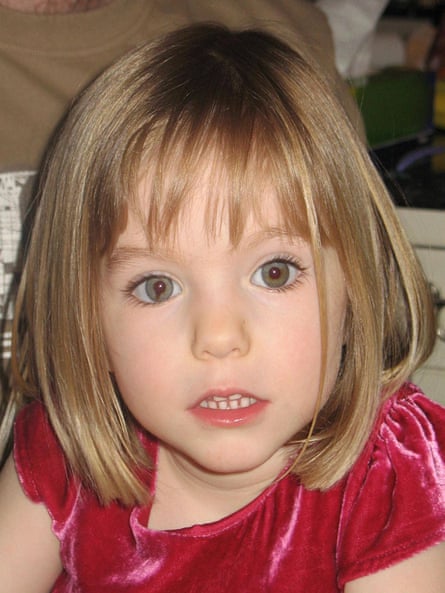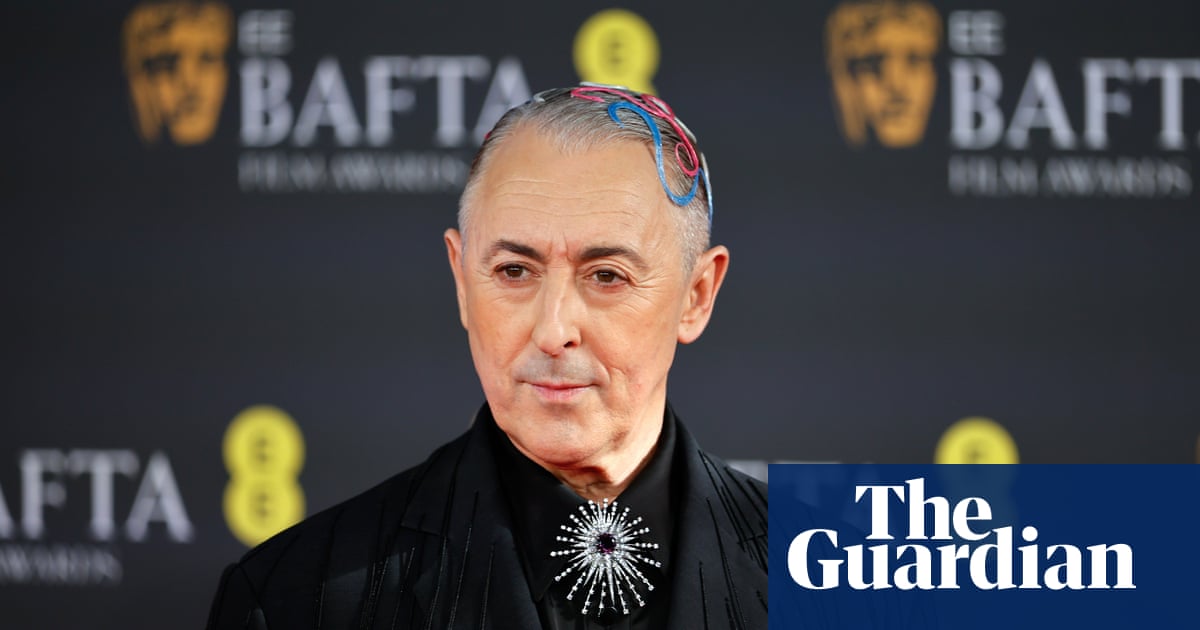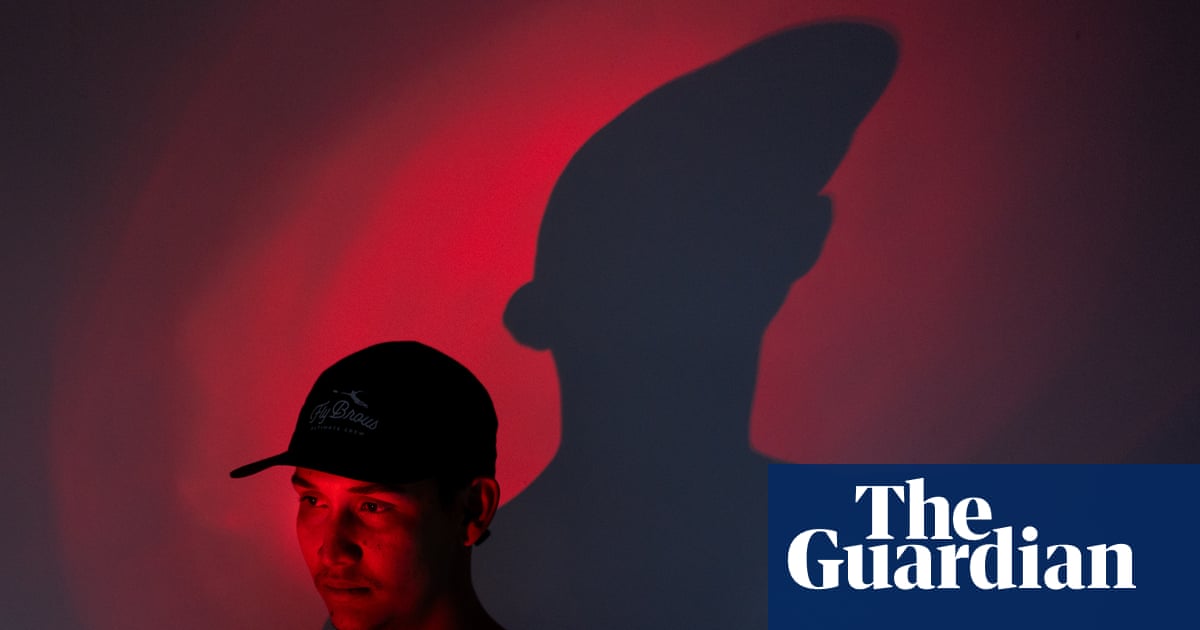For two years Julia Wandelt ran an Instagram account claiming to be Madeleine McCann – arguably the world’s most famous missing child – who disappeared from the Portuguese holiday resort of Praia da Luz in 2007 at the age of three.
Then in January this year the 24-year-old said she no longer believed she was the missing British girl.
Wandelt told the BBC’s disinformation reporter, Marianna Spring, that she had never realised she could have upset the McCann family with her handle @IAmMadeleineMcCann, where she amassed more than 1 million followers and received gifts from supporters all over the world.
Wandelt solicited support from an online bubble of “truthers”, speculators and armchair detectives and eventually attracted so much attention that she featured on the US television chatshow Dr Phil in March 2023, where she declared: “I believe I am Madeleine McCann.”
On Spring’s podcast she painted a sympathetic picture of a lost and confused young woman who had earnestly thought she had been abducted and separated from her family.
She had wanted to represent a happy ending to a devastatingly sad story. She told of online abuse and death threats she had received from anonymous people. She painted herself as the victim.
While she sat in her home in southern Poland and publicly apologised to the McCanns for any hurt she might have caused them, Wandelt was privately waging an enormous secret campaign of harassment with no regard whatsoever for the damage she was doing to a family who had already suffered so much.
By the time the podcast aired, Wandelt had bombarded the McCanns with hundreds of calls, messages and letters signed “Madeleine x”, and had even ambushed Kate and Gerry McCann at their home in December. She was still doing it. And she was plotting more.
What she did not know was that the police were watching her every move. By February she was in handcuffs, charged with stalking the missing girl’s family. She had been arrested on arrival at Bristol airport with her alleged co-conspirator, Karen Spragg, from Cardiff.

Spragg, a petite 61-year-old who had become one of Wandelt’s disciples, found herself months later standing beside her friend in the dock at Leicester crown court facing one count of stalking causing serious alarm or distress.
At a typical alleged stalking and harassment case there would usually be a family member or two in the public gallery but the court had needed to prepare for a potential crowd.
In the first days of what would go on to be a month-long trial, about a dozen people turned out to support Wandelt and Spragg.
The high court judge Mrs Justice Cutts warned everybody in court that contempt was a serious matter. Any disruptions would mean serious repercussions, including potentially finding themselves in the dock.
“Julia Wandelt is not Madeleine McCann,” was one of the first things the jury was told, in definitive terms, by the prosecutor. They would later be shown proof.
From the first day, proceedings had been punctuated by Wandelt’s bursts of emotion, with the defendant crying loudly, sometimes getting up from her seat and going to the back of the dock. On more than one occasion, it became necessary to take a break from the hearing for Wandelt to compose herself.
The McCanns, on the other hand, were stoic and characteristically fair. Kate and Gerry, Madeleine’s parents, gave evidence from behind a screen, answering clearly and succinctly.
They had tried to spare their other two children, twins Amelie and Sean, now 20, from the media attention surrounding the missing persons case, but before the trial the judge ruled it was necessary for Amelie to give evidence.

Wandelt had sent Madeleine’s sister numerous social media messages, including doctored photographs showing Wandelt and Amelie as children, and a “creepy” written letter in which Wandelt claimed to remember playing together. It was “disturbing” and “quite scary”, Amelie told the court.
The McCanns believed Wandelt might be mentally unwell. In her evidence, amid the suffering caused by the defendants’ unrelenting behaviour, Kate, who works as a GP, said: “I did feel concerned and a bit guilty. I always thought Julia’s behaviour indicated she might have a mental health problem.”
While Kate spoke about Wandelt and Spragg turning up at her home on 7 December last year, emerging from the darkness behind her as she got out of her car, she was measured.
“I got a fright and when I realised who it was I felt quite distressed. I think I’d been on edge anyway with all the communication and it just bubbled up,” she said.
Wandelt and Spragg had been demanding Kate take a DNA test and Spragg had shouted: “Don’t you want to find your daughter?”
The jury was played audio recordings they made of their interactions with the McCanns, which included the family pleading with them to leave them alone, clearly telling them they were frightening and upsetting them. Gerry could be heard to say: “You are not Madeleine … I don’t want this, please do not hassle us and leave the premises.”
Kate described the relief she felt when the duo were arrested, realising she no longer needed to be anxious when her phone rang. There had been one day, the jury heard, that Wandelt had called her 60 times from a withheld number.
The case was definitively not about Madeleine. But Kate was forced to talk about the little girl who went missing at the age of three when the court heard how Wandelt had sent her sickening letters calling her “Mum” and had signed them “Madeleine x”.
Kate said: “It’s obvious the thing I want the most … is for Madeleine to be back and for Madeleine to be calling me Mum. And that was really stressful for me. Referring to me as Mum is hard.”
Wandelt did bear a passing resemblance to the childhood pictures of Madeleine, who would be expected to have similarly pale skin and dark blond hair as an adult, and Wandelt had pigmentation in her iris akin to the coloboma that became a crucial signifier in the search for the missing girl. But she was two years older than Madeleine.
Ultimately though, she had “nowhere to go” when faced with scientific evidence that she had no familial link to the McCanns, the prosecutor Michael Duck KC said.
Though the police knew Wandelt was not Madeleine, they reluctantly tested her DNA after her arrest, purely with the aim of ending the family’s harassment.
The court heard that Wandelt and Spragg had been making “increasingly bizarre plans” to collect Kate’s DNA, which included going through the McCanns’ bins and taking forks from restaurants they had eaten in.
Forensic expert Rosalyn Hammond told jurors “Julia Wandelt cannot be Madeleine McCann” because their DNA profiles did not match.
Wandelt appeared to have no contrition over the consequences of her actions. When it came to her evidence, she interrupted the prosecutor, often arguing back.
She failed to paint herself as an innocent young woman confused about her identity who made a simple mistake.
Wandelt was found guilty of harassment, but not guilty of stalking, and Spragg was found not guilty of stalking or harassment.
Wandelt faces deportation after being sentenced to six months’ imprisonment, which is less than the time she has already served on remand awaiting trial. She was told she would be made the subject of a restraining order because she poses a “significant risk of the harassment of the McCanns in future”.

 3 months ago
113
3 months ago
113

















































